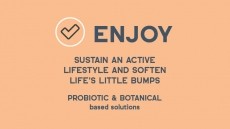EFSA defends negative opinion of kidney bean’s weight-managing ability

Comments made by EFSA’s Panel on Nutrition, Novel Foods and Food Allergens (NDA) refer to the consumption of GlycoLite, an aqueous extract from white kidney bean (P. vulgaris L.) that is the subject of a health claim application by analyze & realize GmbH.
The applicants object to the conclusions reached by the Panel on two human intervention studies performed in the same centres as well as the absence of a plausible mechanism of action.
analyze & realize, a contract research organisation (CRO) serving the food sector, also highlight inconsistencies in assessing the application versus a successful claim made on the dietary fibre glucomannan.
“In both claims, the claimed effect was a reduction of body weight,” the technical report comments.
“In relation to the glucomannan claim the applicant states, ‘the sole study that ran over a sufficiently long period appears to have obvious shortfalls in the statistical reporting and in the study population (the study was conducted on severely obese women)’.
“Additionally, the dose tested was higher than in the proposed conditions of use for the claim (a dose of four grams per day (g/day) was used in the study, whereas at least three grams of glucomannan daily was indicated in the conditions of use for the claim by the NDA Panel).”
Mech of action required
In response, EFSA quotes guidance that states evidence for a sustained effect with continuous consumption of the food/constituent over, for example, about 12 weeks, should also be provided.
“This doesn’t mean that all the studies submitted for the scientific substantiation of the claim to be considered as pertinent by the NDA Panel should last 12 weeks,” EFSA says.
“This means that, whenever the claim is substantiated through intervention studies of shorter duration, evidence for a sustained effect with continuous consumption of the food/constituent over approximately that period of time should also be provided (i.e., at least one study).”
Further issues centre on GlycoLite’s ‘negative’ opinion, which is claimed required a mechanism of action in order to substantiate the claimed effect.
This, according to the applicant, is not in line with EFSA’s guidance documents on health claim applications.
EFSA hit back stating that evidence on a mechanism of action is not a strict requirement for claims substantiation.
“However, when present, is one of the elements considered by the NDA Panel in weighing the evidence because it increases the confidence on the biological plausibility of the effect,” the report outlines.
“The comments received did not provide evidence which would warrant a change in the conclusions of the NDA Panel.
Same centre studies
The report, published in the Authority’s official journal, also responds to analyze & realize’s claim that one study was ‘disqualified’ by EFSA because it had been conducted in the same centre and by the same research group as another submitted study.
The organisation points out this is not consistent with EFSA’s Guidance documents because the opinion adds a new requirement for studies to be considered as evidence for a claim (different centres and/or research groups).
“In the Scientific Opinion on GlycoLite and reduction of body weight, the NDA Panel, in weighing the evidence, notes the results of the two human studies conducted under energy restriction had not been independently replicated AND that there was no evidence for a plausible mechanism of action.”
“In the absence of evidence on dose-response, the confidence of the NDA Panel on a consistent effect of GlycoLite on the reduction of body weight was not enough to consider the claim substantiated, even if none of these are absolute requirements for substantiation.”















